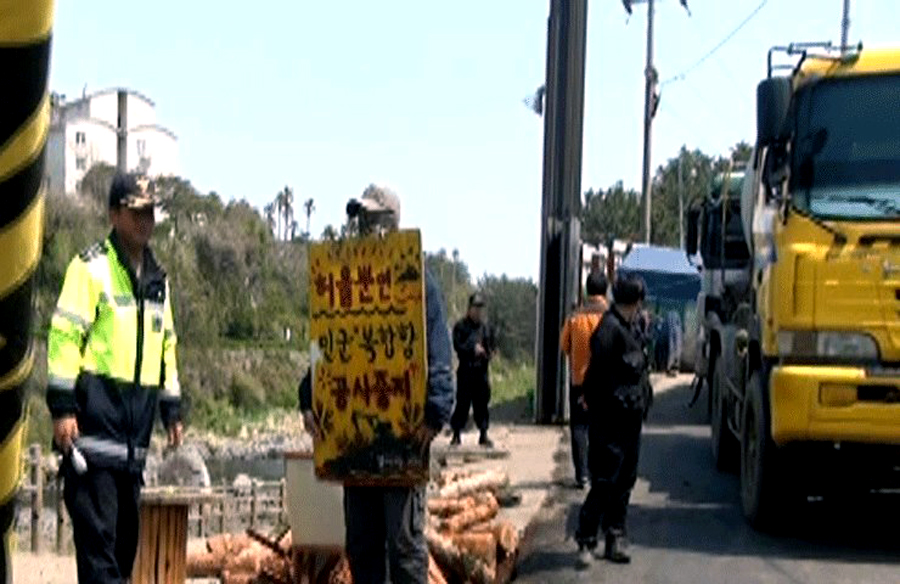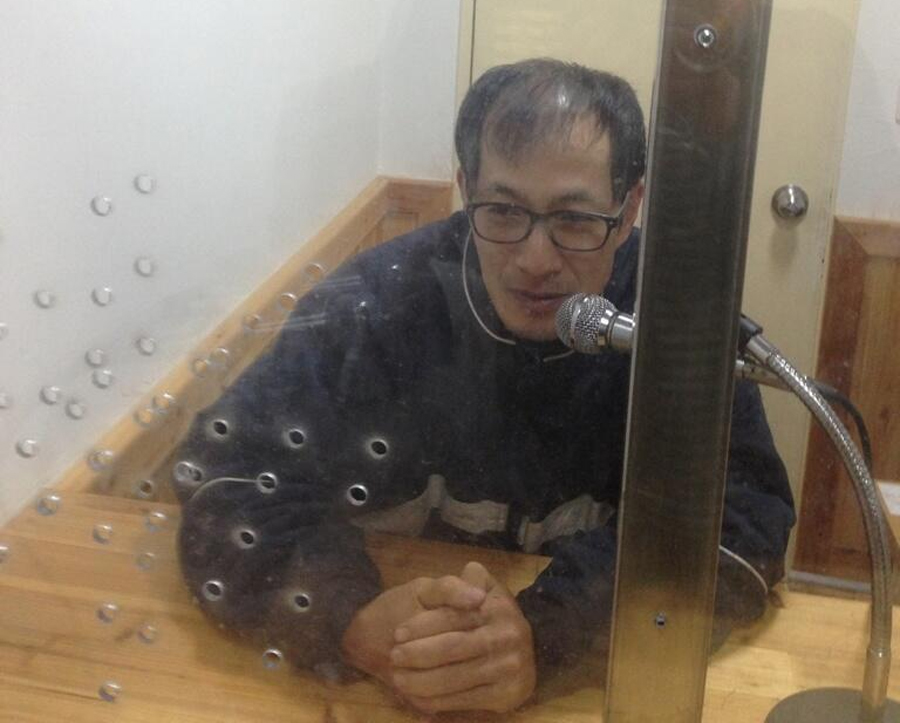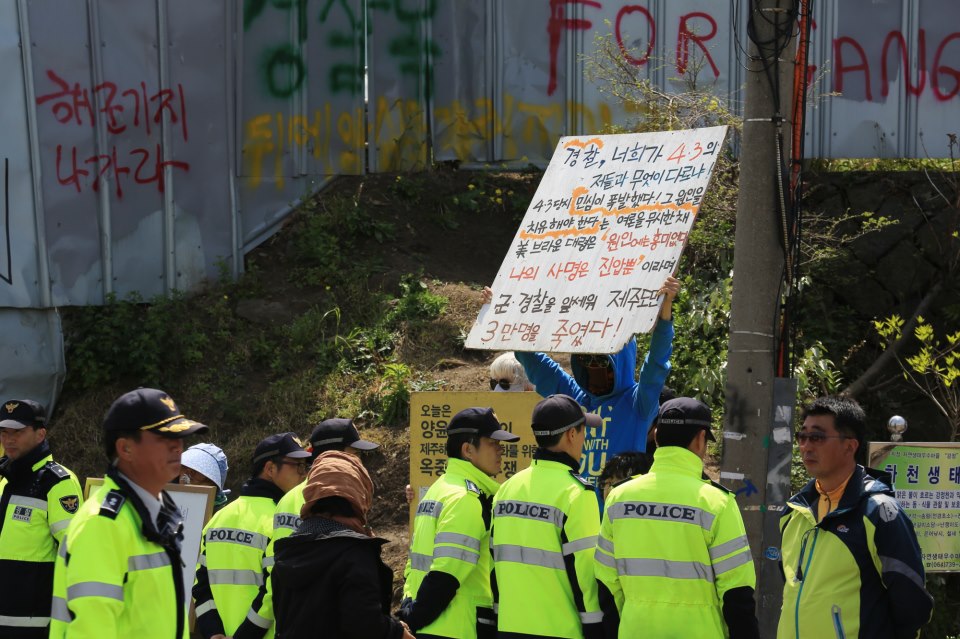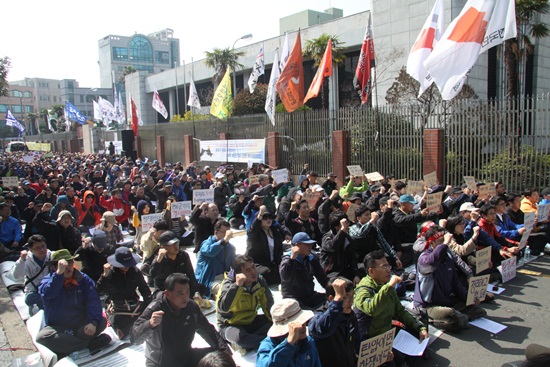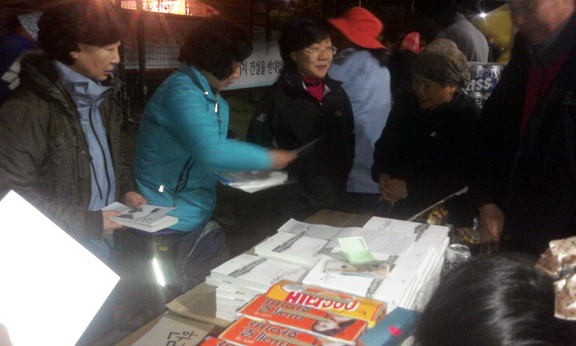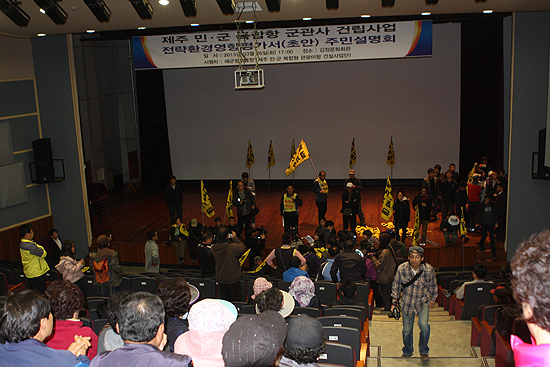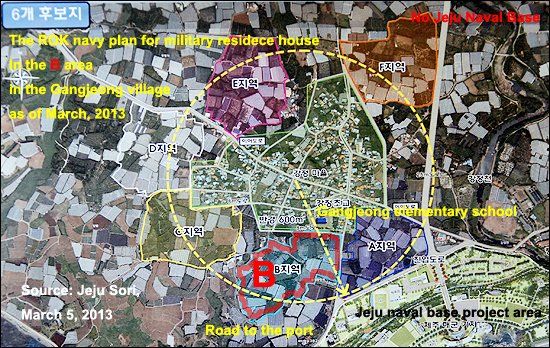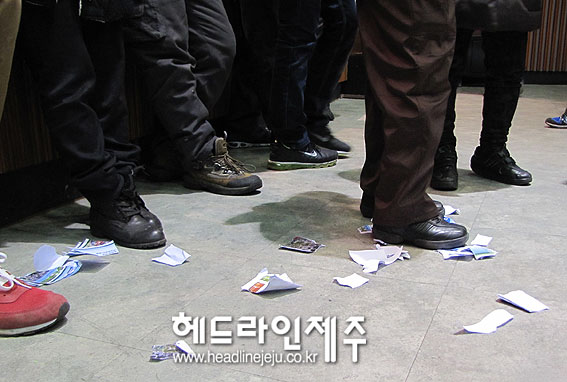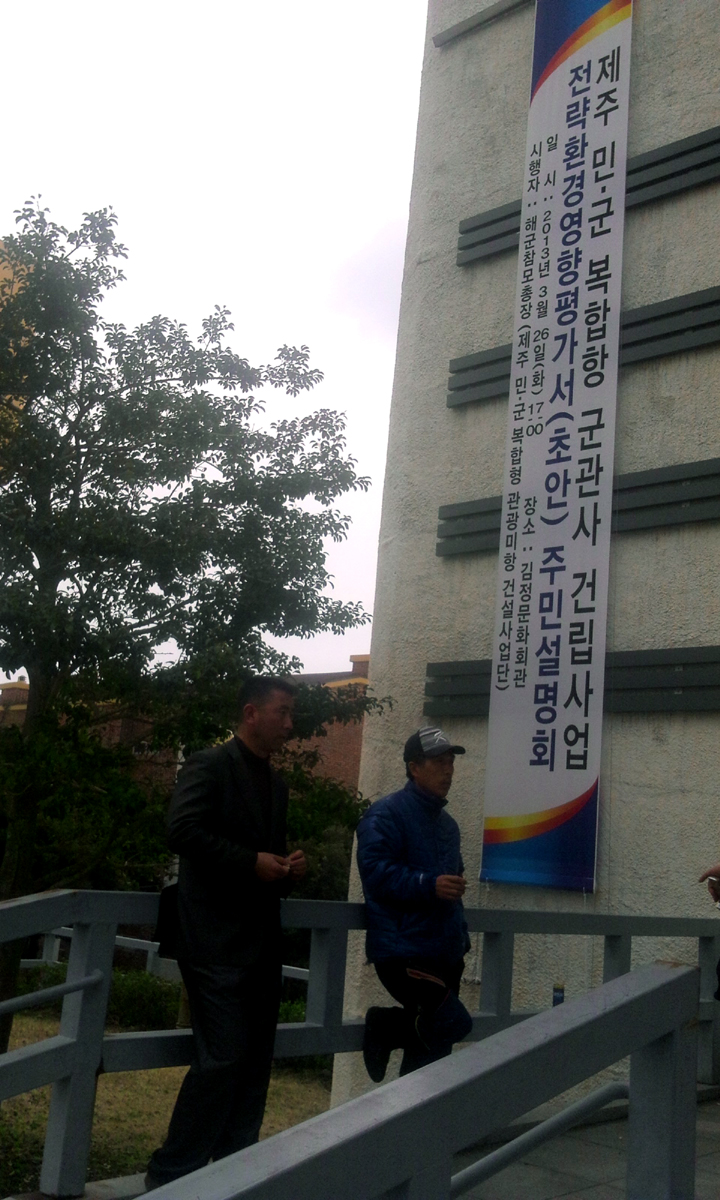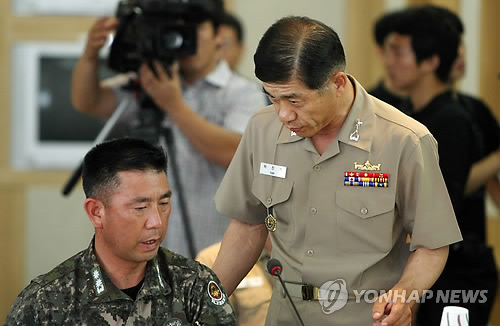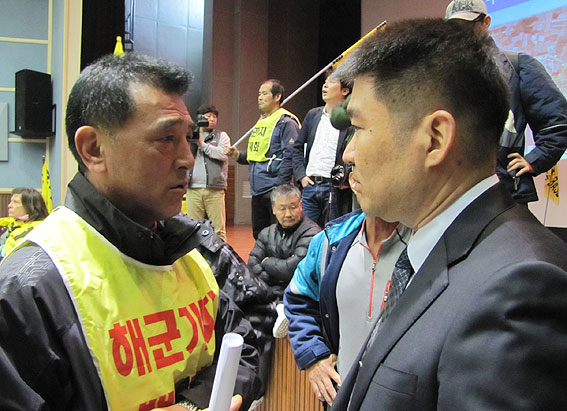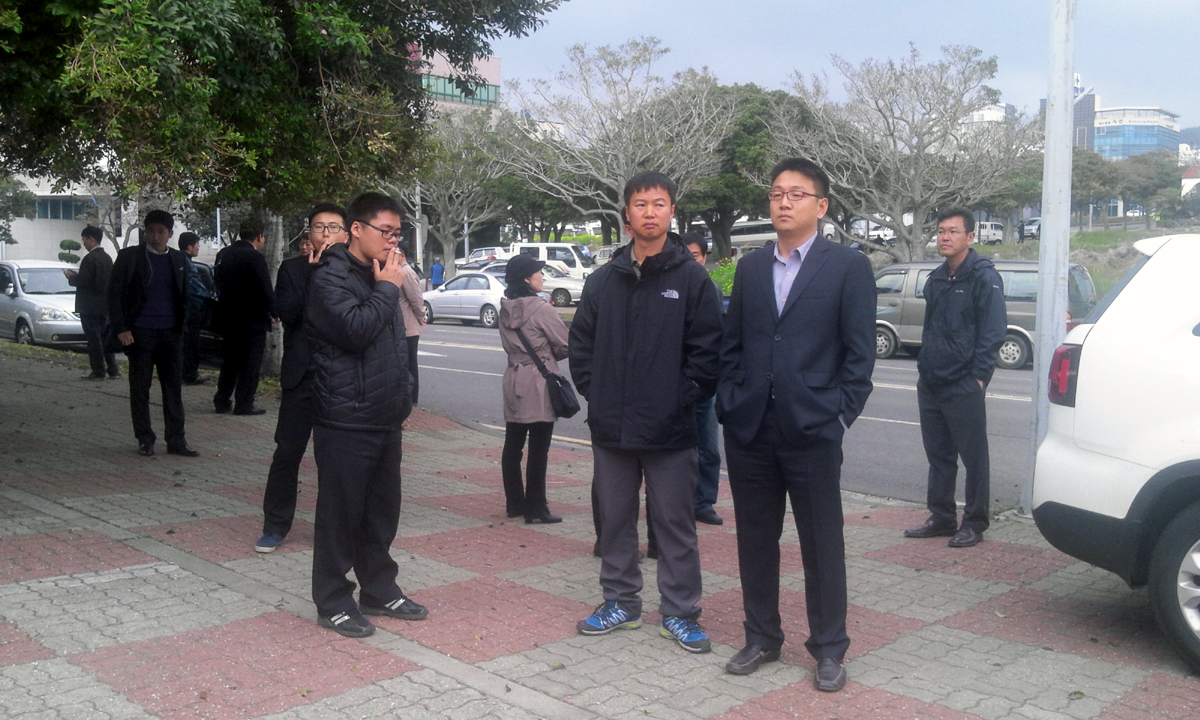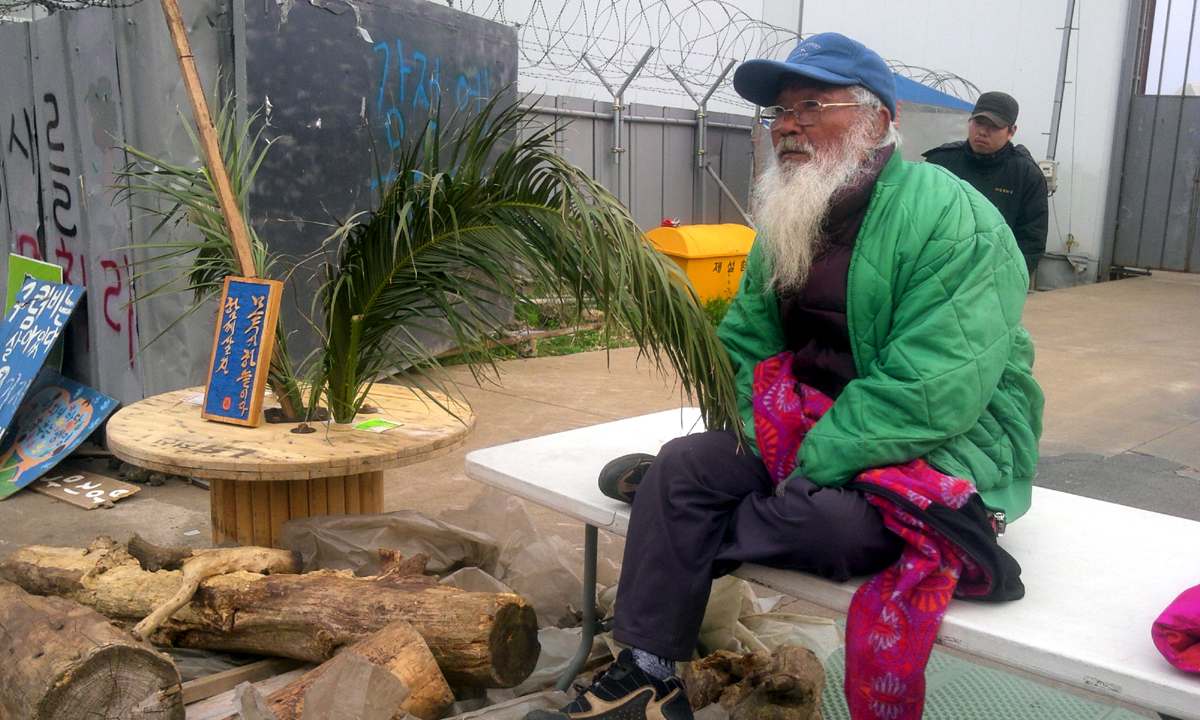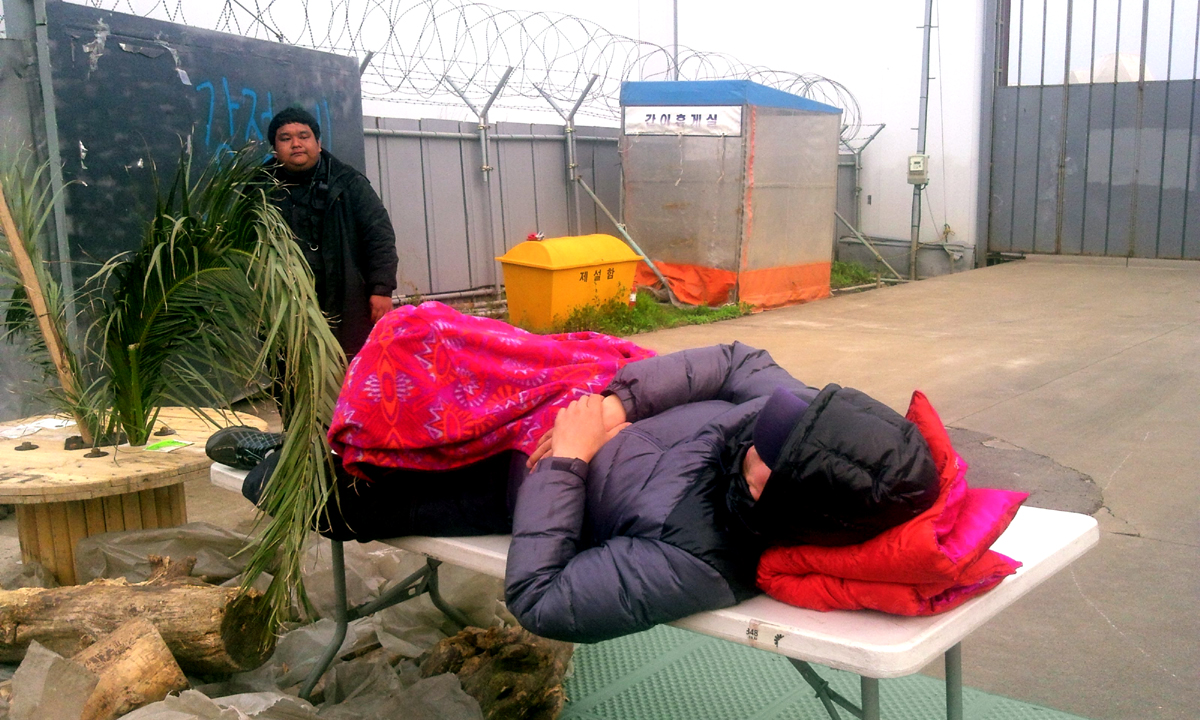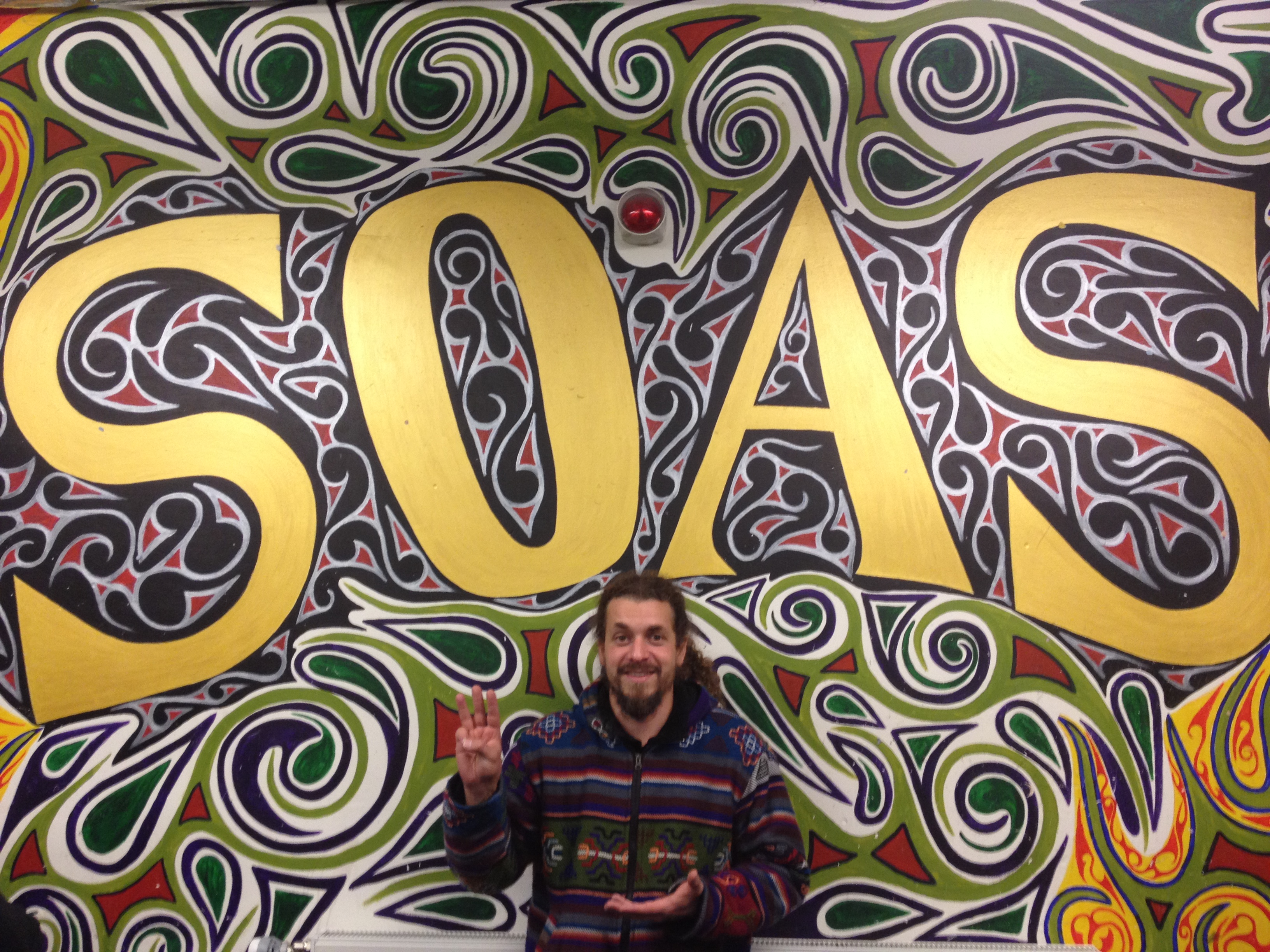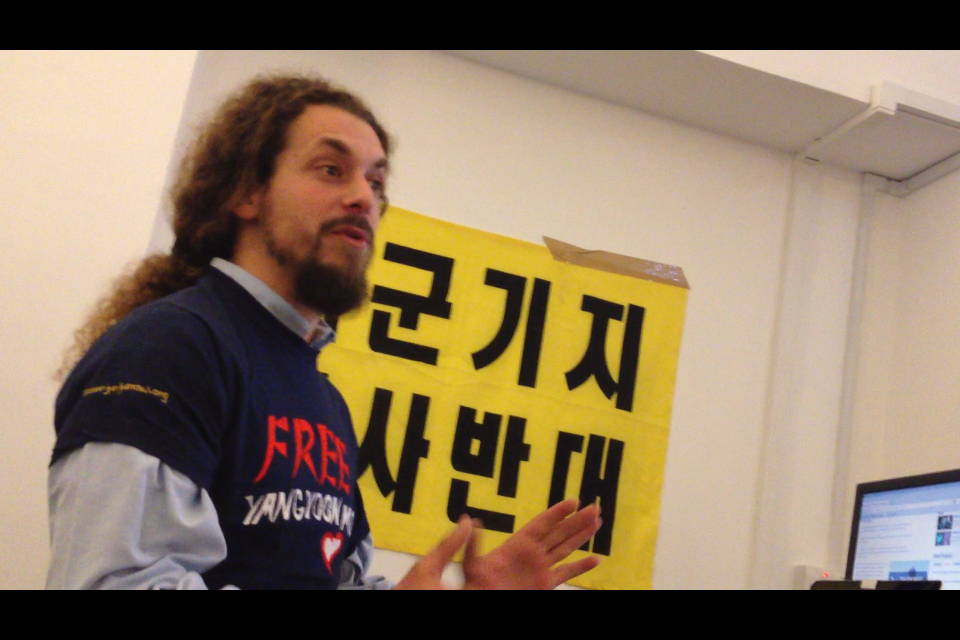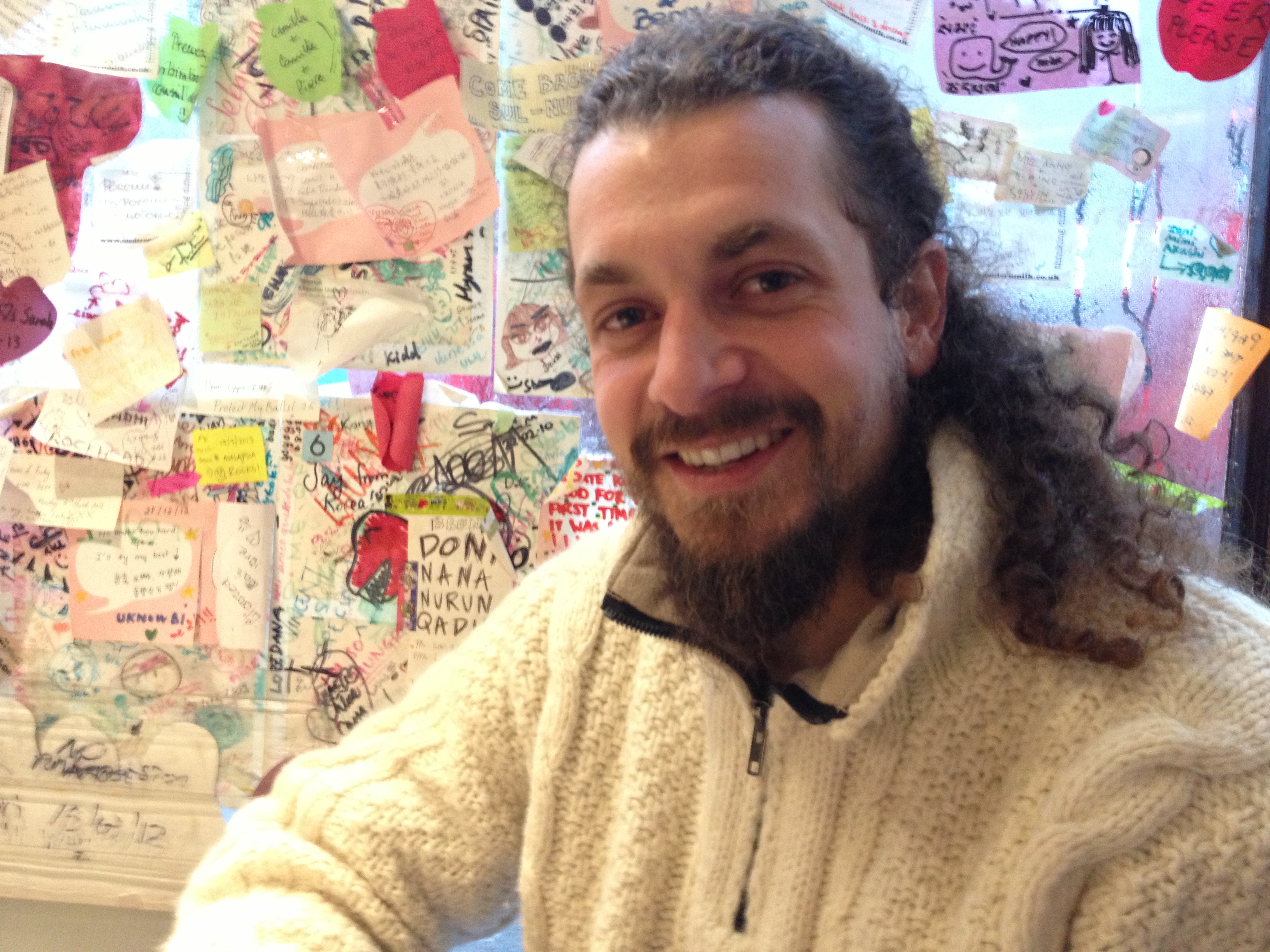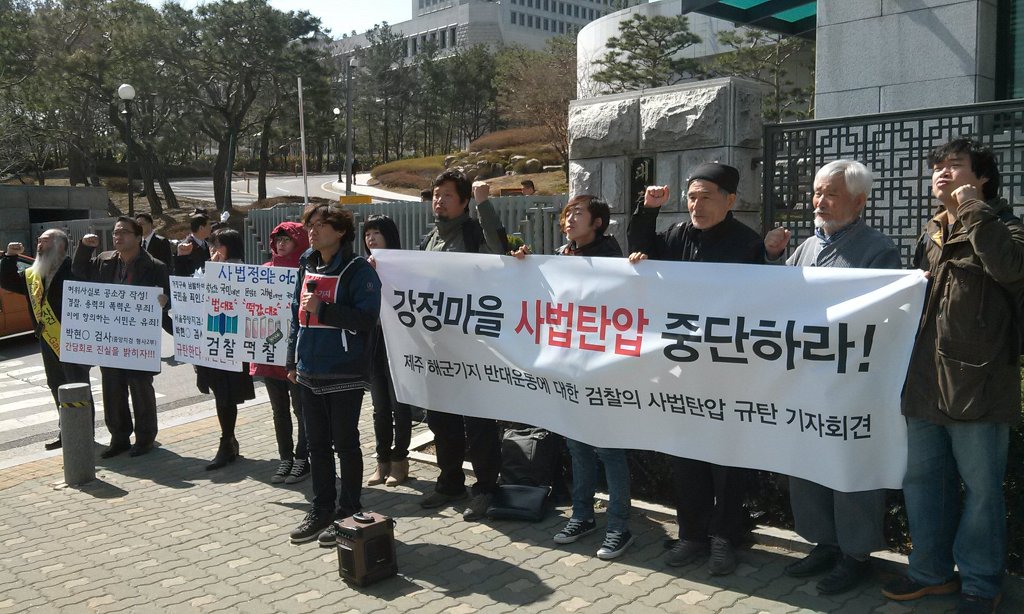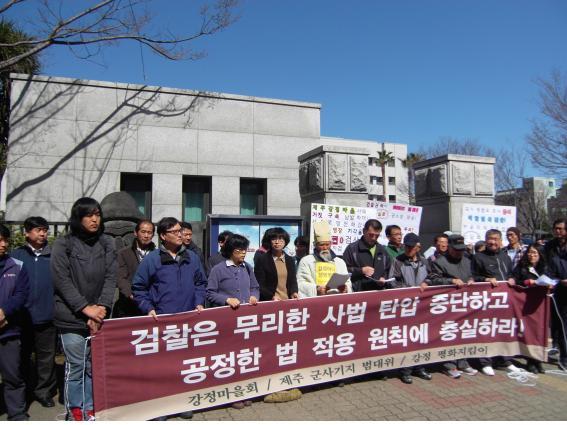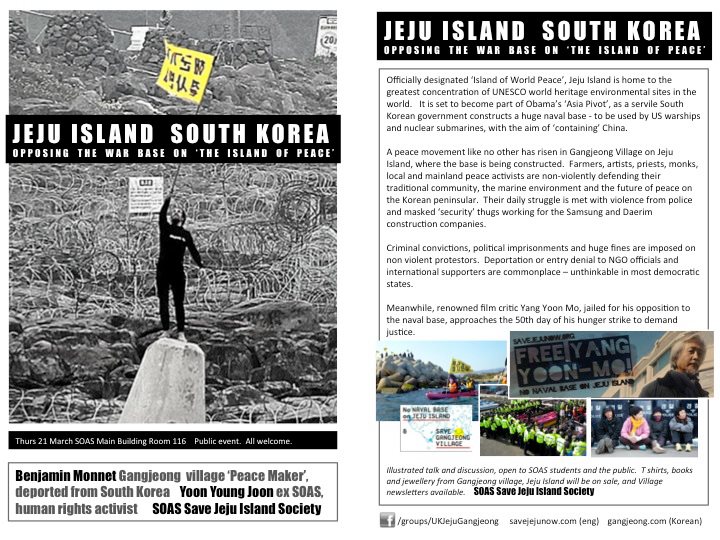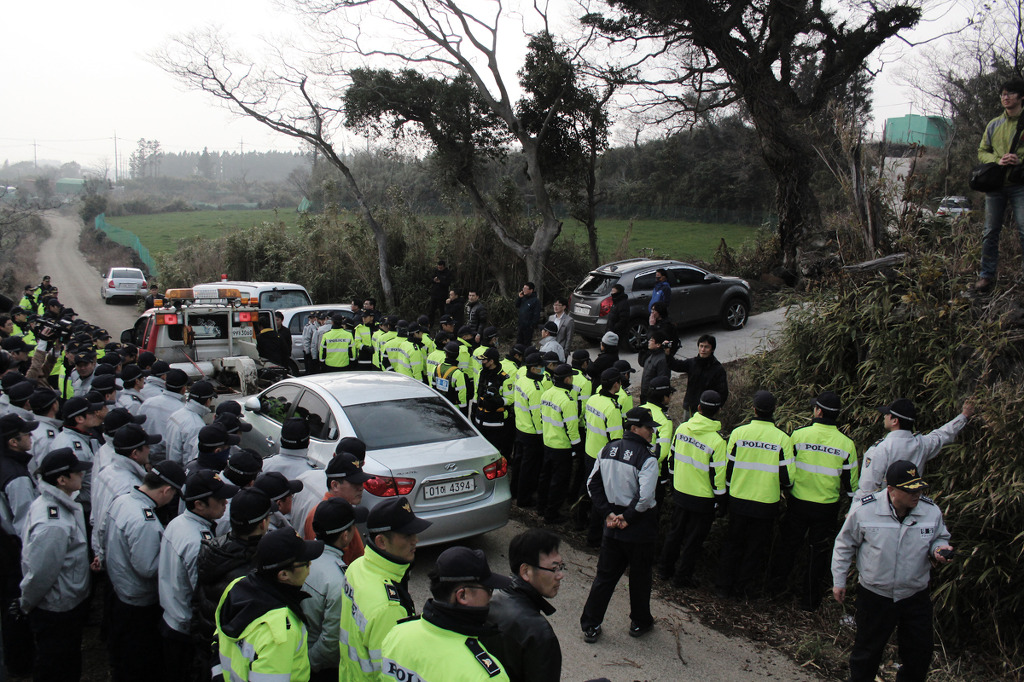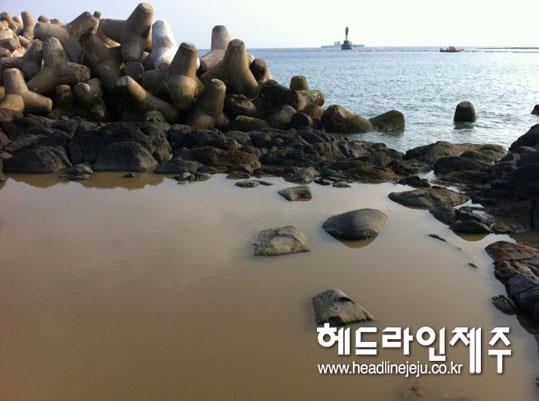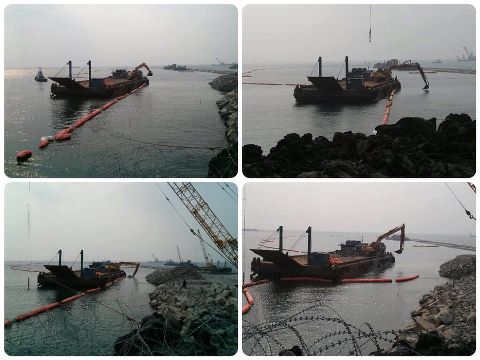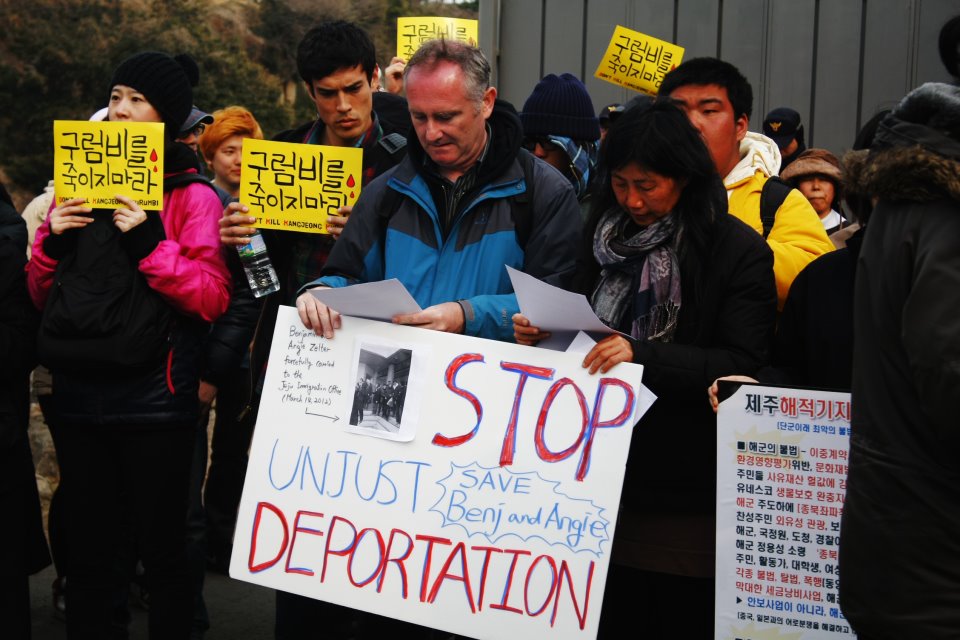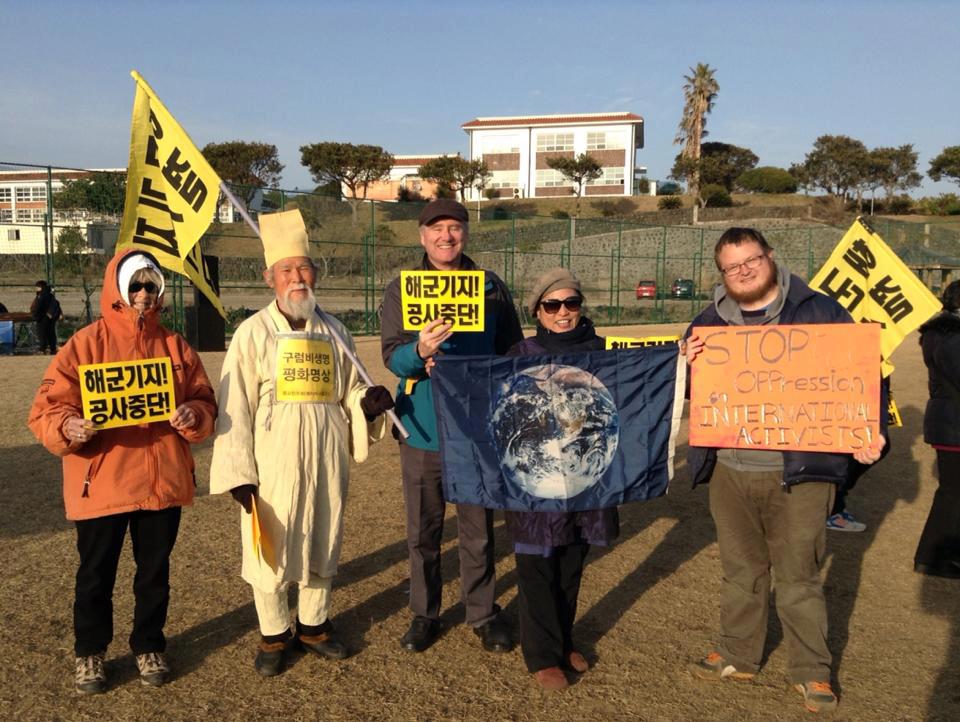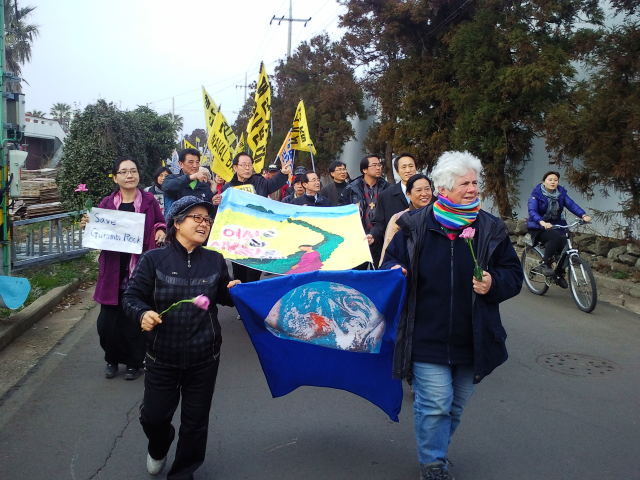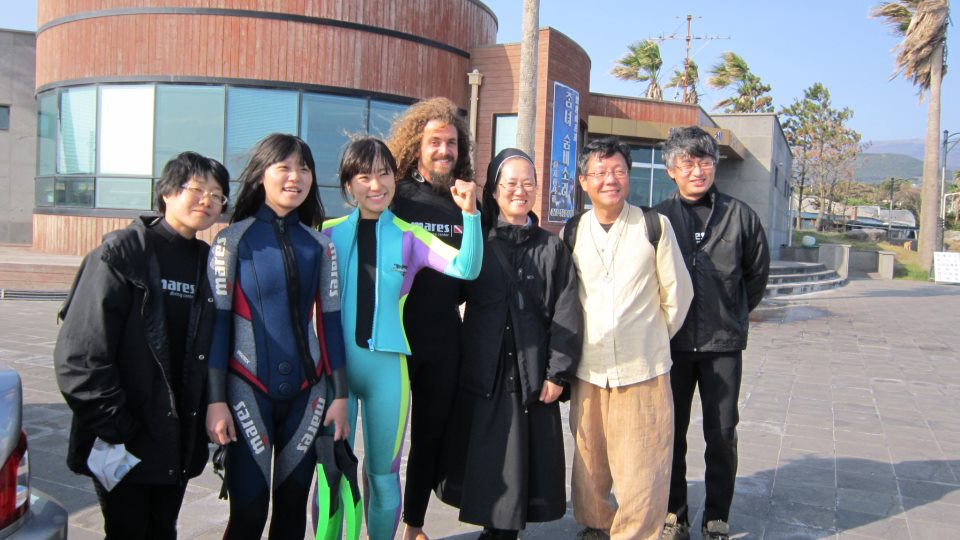Re-blog from the Intrepid Report
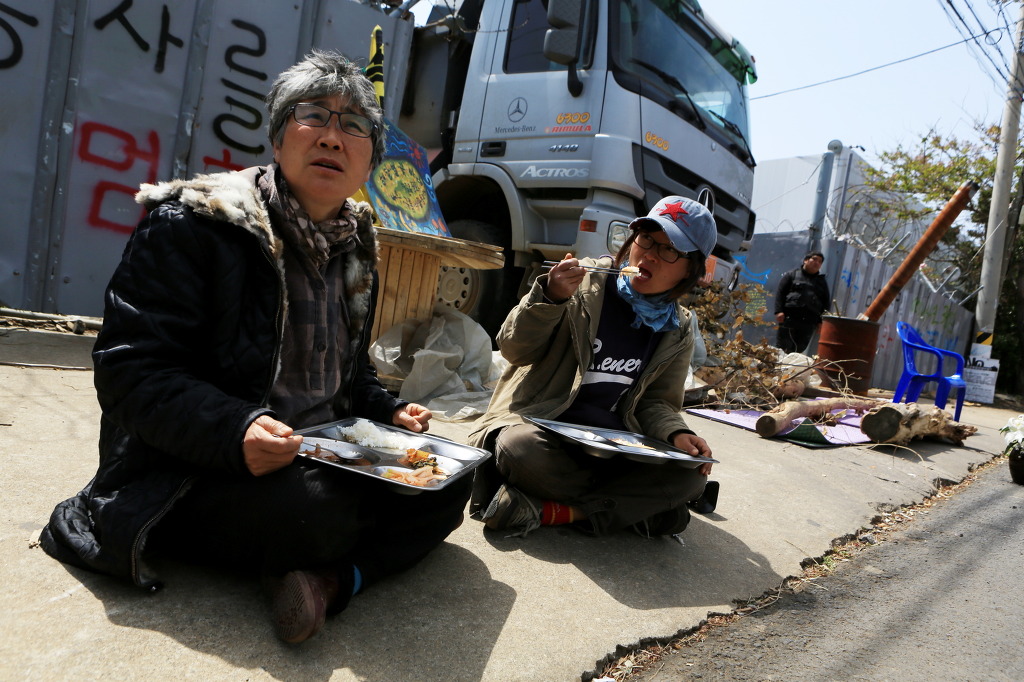
Non-violence in times of war: Protest and resilience in Jeju, South Korea
by Carole Reckinger
April 16, 2013
In the midst of warmongering and a worsening of tensions between North and South Korea, a group of peace activists is continuing its non-violent struggle against the construction of a naval base on the island of Jeju, South Korea.
Tensions between North and South Korea are not new and the importance of building the base have been repeatedly put forward by the South Korean government as playing an important role in coastal defense. It claims the naval base must be completed and put into service as soon as possible in order to react quickly to any further military provocations by North Korea.
Since 2007, the small fishing village of Gangjeong has led a non-violent resistance against the construction of a naval base right next to a UNESCO biosphere reserve. Despite 94% of the villagers having opposed the base in a referendum, the government has not respected the wish of the people concerned and seems to be buckling under the pressure of corporate conglomerates and the weight of the United States’ wish for an increased presence in the Pacific.
In November last year, I spent a month in Gangjeong village. Day after day, I observed the disproportionate police reaction to the non-violent blockade of the entrance to the construction site and. The most striking feature of the protest was the protesters’ resilience. Young and old and from a multitude of social backgrounds, despite their bruised bodies, the odds stacked against them and the risk of high fines or imprisonment, they kept returning to the front of the gate to fight for what they believe is right. But since tensions have been rising with the North, police crackdown has become more severe and more protesters have been arrested.
‘Professional troublemakers’
From the time the construction of the base was announced, activists, Catholic priests and nuns, Protestant pastors, law professors, teachers, artists, writers, families and students from all around South Korea have joined the villagers’ protest. In order to hinder and delay construction, protesters file lawsuits and press for a reconsideration of the project nationwide, but also regularly block the entrance to the construction site with their bodies, chain themselves to anything available and go on hunger strikes. The fight against the naval base currently mobilizes more than 125 non-governmental organizations across South Korea and more than a hundred abroad [1].
The reasons for which activists from across South Korea and abroad oppose the base are manifold. They include calls for environmental protection, social justice, demilitarization and non-violence. Support for the anti-base movement at the national level is limited, one reason being that the mainstream media has not picked up the topic. When it has, it has portrayed the activists as troublemakers and has tried to discredit them. In times of heightened tensions with the North, calls for demilitarzation, peaceful resolution of conflict and the protest against military bases are heavily criticized, and the Gangjeong protesters are insulted as undermining the security of the state and being pro-North Korean agitators.
The protest demographics, however, invalidate accusations of professional trouble-making as the movement is composed of housewives, taxi drivers, teachers, farmers and students, from all ages and social backgrounds. Many activists in Gangjeong, are members of pro-disarmament and peace groups/networks, and clearly oppose a militarization of the ‘Peace island.’ When Jeju last hosted a military base in 1948, 30,000 people were killed, 40,000 houses burnt down and 90,000 people made homeless (with a population of 300,000 at the time), as the government sought to quell an uprising led by a small group of alleged communist insurgents.
Only in 2003 did the South Korean government apologize. President Roh Moo-Hyun called the massacre, which became known as the April 3rd incident, a “violation of human rights by the state.” He declared Jeju the “Island of World Peace.” But the official peace rhetoric was short lived. Only four years later, the same President finalized plans for the naval base on Jeju. “We do not understand why South Korea, with more than 100 military installations, still needs another military base,” says the mayor of Gangjeong. “We are not convinced by the argument that this naval base will enhance the security of our country” [2].
The ROK Navy already operates seven naval bases in South Korea and the Republic of Korea Armed Forces is the sixth largest army in the world. [3] Since the end of the Korean War, South Korea has a joint military partnership with the United States through the US-ROK Mutual Defense Treaty. South Korea relies on its security partnership with the United States to protect itself from external threats, most notably North Korea.
A new tactic of discouragement
In the midst of the growing tension between North and South, demilitarisation and peace messages will not be given much space in the national discourse and the mainstream media. The risk is high that security arguments will be used to crack down on the peace workers and smother the years old struggle to an end.
During the long years of dictatorship, dissent and civil disobedience would have been met with bloody repression. Today, the government is not in a position to use such deadly violence on its people and uses other tactics. Since the start of the construction, around 700 arrests have been made with 500 indictments and 22 people imprisoned. However, following the presidential election of Park Geun-hye in December 2012, fines against the protesters have been soaring. The total amount of fines for anti-base protest has reached approximately US$450,000 in addition to damage compensation fees of approximately US$280,000. Between January and mid-February 2013 alone, around 100 people went on trial and were sentenced to combined total fines of US$90,000 [4]. This seems to be the government’s newest tactic to discourage protesters from taking part in the protest. This is a much more discreet but just as effective method of repression.
It is clear that in the eyes of the government, the local community’s livelihood and the natural and human resources on which it depends come second to geo-strategic and corporate economic interests. The current North-Korean military threats will further undermine the nonviolent protest against the militarization of Jeju and the government seems prepared to use all levels of state power to go ahead with the project, from massive executive reinforcement to legal and political measures. With all the media attention focused on the war rhetoric, the fight of the Gangjeong activists is at risk of being forgotten.
Notes
1. Information retrieved from www.savejejunow.org
2. Personal interview conducted 19 November 2012 in Gangjeong, South Korea
3. Quoted in Republic of Korea Armed Forces, Wikipedia entry, Retrieved from www.wikipedia.orghttp://en.wikipedia.org/wiki/Republic_of_Korea_Armed_Forces
4. Gangjeong Village story (feb 2013), severe judicial oppression fought with healing hands

